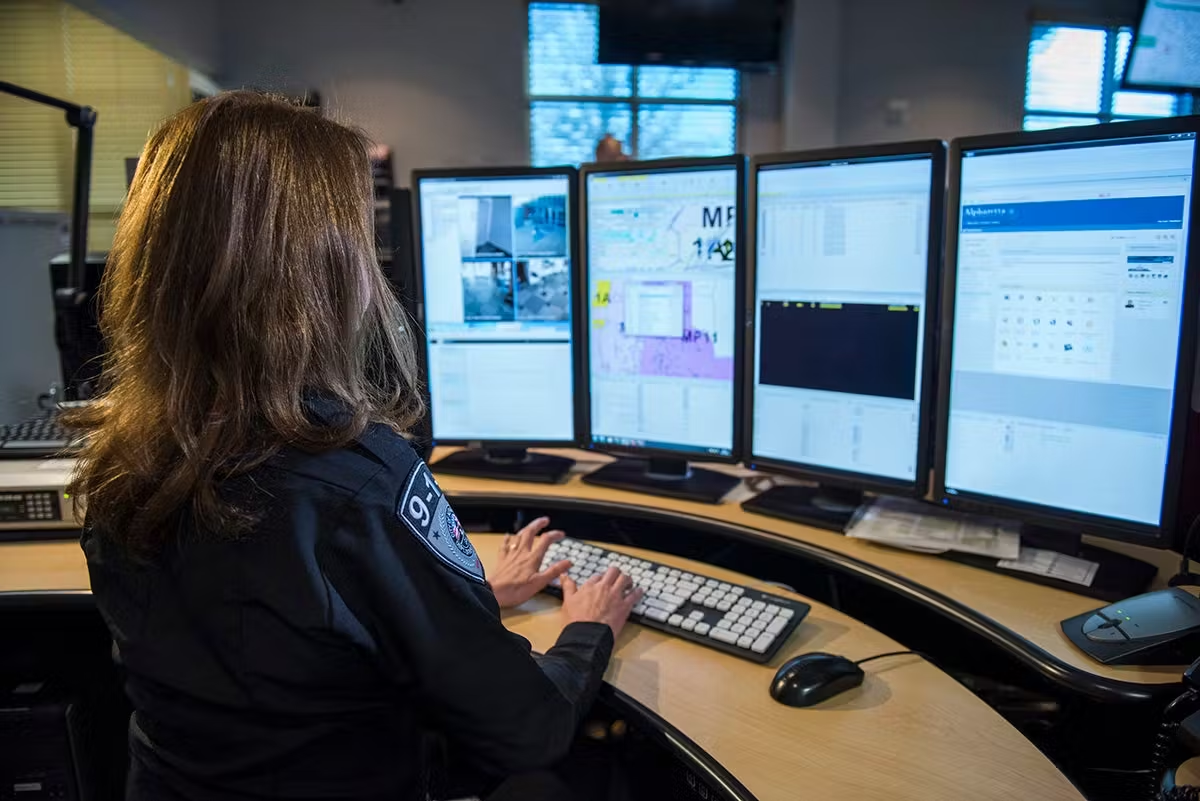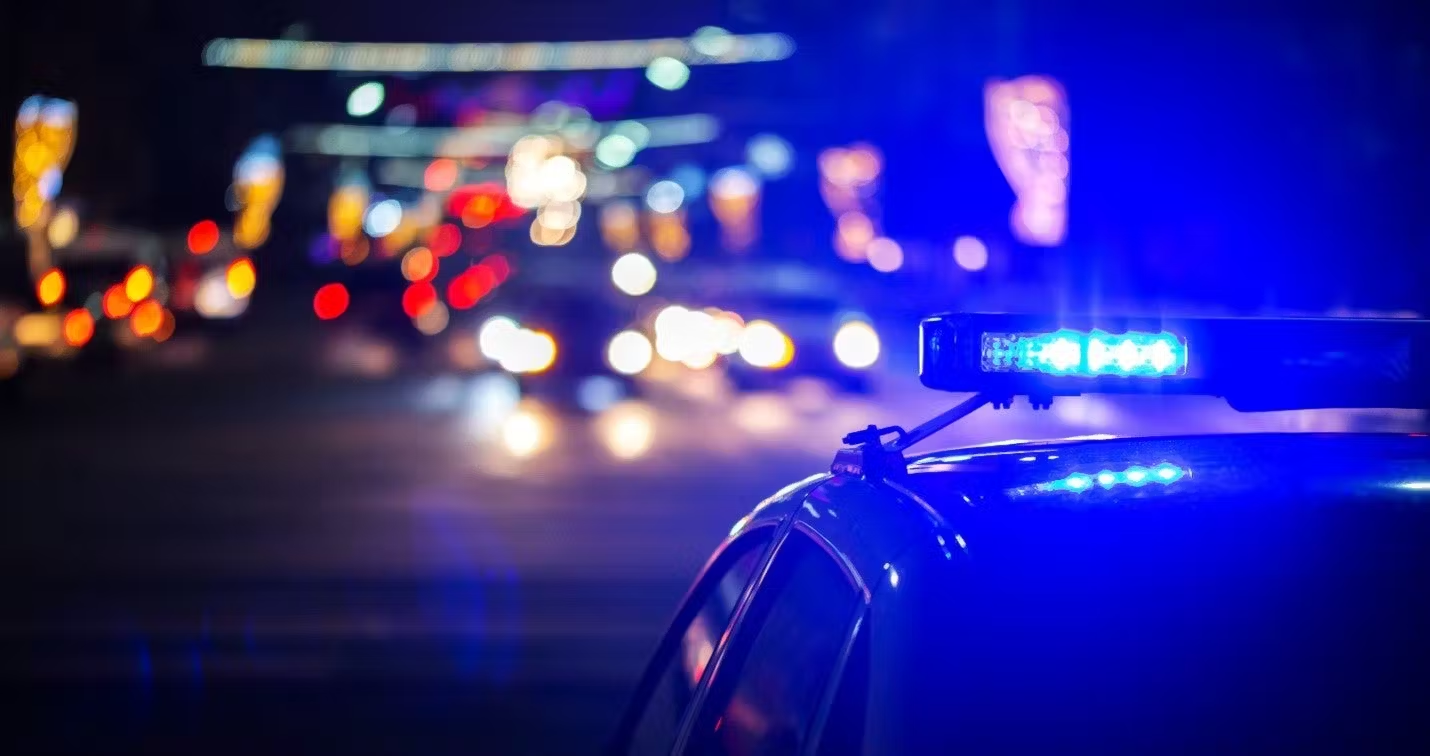
A Call for Mental Health with an Emergency Call Taker


In January, We Often Feel Blue
As the glitter of the holidays fades, the gloom and doom of January can quickly kick in. No wonder that “Blue Monday” (the third Monday of the year) is called the most depressing day of the year.
To bring attention to the importance of mental health inside and outside of public safety answering points (PSAPs), we sat down with Stephen Sutton, Sr. Telecommunicator/CTO at the Danville Fire Department Emergency Communications, Danville, Virginia, to discuss the daily life of a call taker and the challenges of mental health calls.

Right: Stephen Sutton
A Day in the Life of a 911 Telecommunicator
911 telecommunicators work in the frontline of public safety services, coordinating emergency responses. While these headset heroes mostly stay invisible to the public eye, they are the first of the first responders who witness the rawest moments of life. Day after day, they handle all types of emergency calls, including medical emergencies, accidents, domestic disturbances, and natural disasters. This already creates a high-stress environment, where post-traumatic stress disorder (PTSD) or depression is not uncommon.
What many people are not aware of is that 911 call takers also often receive non-emergency calls, such as noise complaints and parking violations. It means that right after a medical emergency call, a telecommunicator might have to handle a parking violation complaint, which requires a completely different state of mind and thought process.
Such a constant need to switch between different types of calls further increases their daily challenges and can contribute to burnout.
In addition to all that, as Stephen Sutton points out, “mental health-related calls have been on the rise, with individuals seeking help for suicidal thoughts, anxiety, or psychotic episodes. Many of the situations we handle involve individuals in crisis, and it can be difficult to navigate the emotional intensity of those calls.
It’s mentally taxing to offer the right support while also staying focused on the protocols and procedures we must follow.”
Handling Mental Health Callers
Due to the nature of these situations, mental health-related calls typically take longer than other 911 calls, particularly because call takers don’t always have the right tools and resources to handle them properly. There’s a lack of uniformity in codes to categorize mental health calls, which can misguide first responders on the field and create real risks for people in need.
“I handle mental health-related calls fairly often, as they have become more prevalent in recent years,” explains Stephen. “Having spent years on a hostage/crisis negotiation team, I’ve gained invaluable experience in managing these types of situations. The skills I developed there—like de-escalation and active listening—have been crucial when dealing with mental health episodes.”
Unlike some call takers, who might feel unfit to handle such calls, Stephen feels prepared based on his past experiences but still highlights the challenging nature of these calls.
“The difficulty comes in managing the emotional weight of these situations while maintaining control of the call. Sometimes, it’s hard to gauge how much support a person needs or whether they’re truly in danger. It’s challenging to balance empathy and crisis management under the pressure of a limited timeframe.”
So how can call takers stay ahead of the evolving challenges in this area?
“I believe the training is helpful but could be expanded. More in-depth, scenario-based mental health crisis training would be beneficial. The tools could also include better access to mental health resources and partnerships with mental health professionals who could assist during or after the call,” he says.
With mental health calls on the rise, it’s important to note that besides the 911 emergency line, the 988 Suicide & Crisis Lifeline is also available 24/7/365 for people facing mental health struggles, emotional distress, alcohol or drug use concerns, or just in need of someone to talk to.
Taking Care of Call Takers
Based on our discussion with Stephen, it’s easy to see that being a call taker is no ordinary job; it’s a multifaceted role with high risks of depression, PTSD and burnout. And yet, the heroes on the other end of the line do their lifesaving work with little recognition from the general public.
“We are out of sight and out of mind,” adds Stephen. “Although personally I do not need it. Just knowing I did my job to the best of my ability is good enough. But I would not turn down a “good job” occasionally.”
Personally, I think people like Stephen don’t just do a “good job.” They do an excellent, vital job for which they deserve all the recognition they can get, along with the technical help and support they need to do their job in the best and safest way possible.
Verint is dedicated to providing PSAPs with the cutting-edge technology 911 telecommunicators deserve, including:
- Interaction recording and incident reconstruction tools that help reduce liability and make emergency call-handling easier.
- Automated quality management that reduces supervisor workload, provides call takers with more objective feedback, highlights high performers, and auto-assigns coaching when needed.
Furthermore, Verint is a proud sponsor of 911der Women’s Empower Conference that offers tools for all 911 professionals to improve wellness.
Learn more about Verint for Public Safety here.
